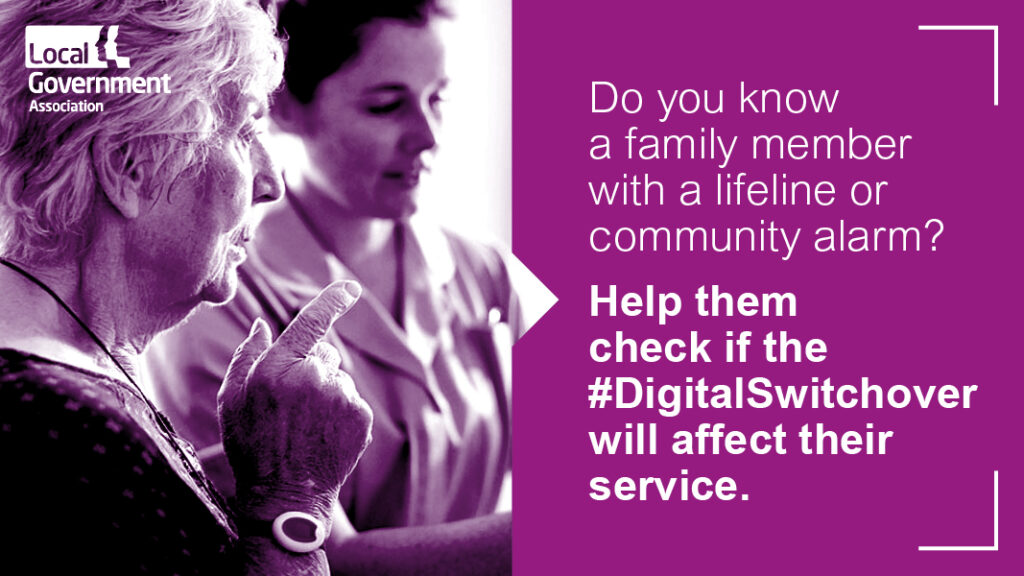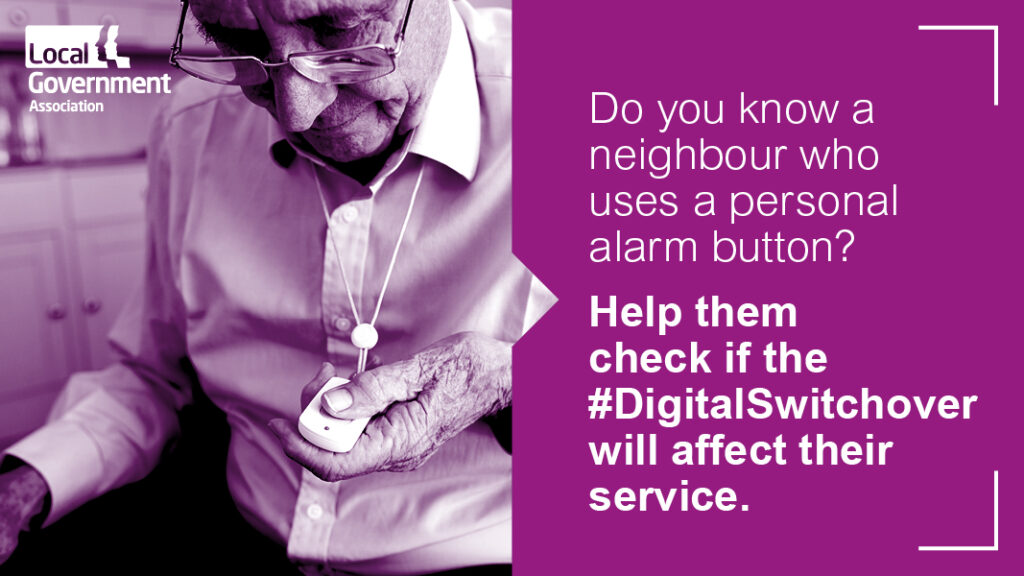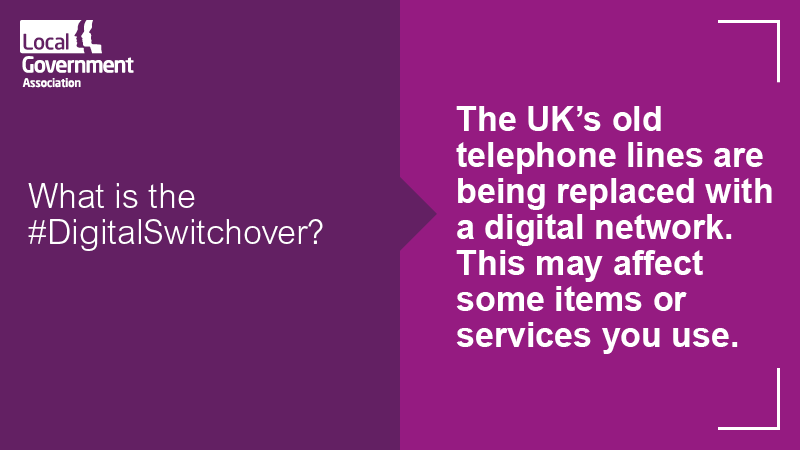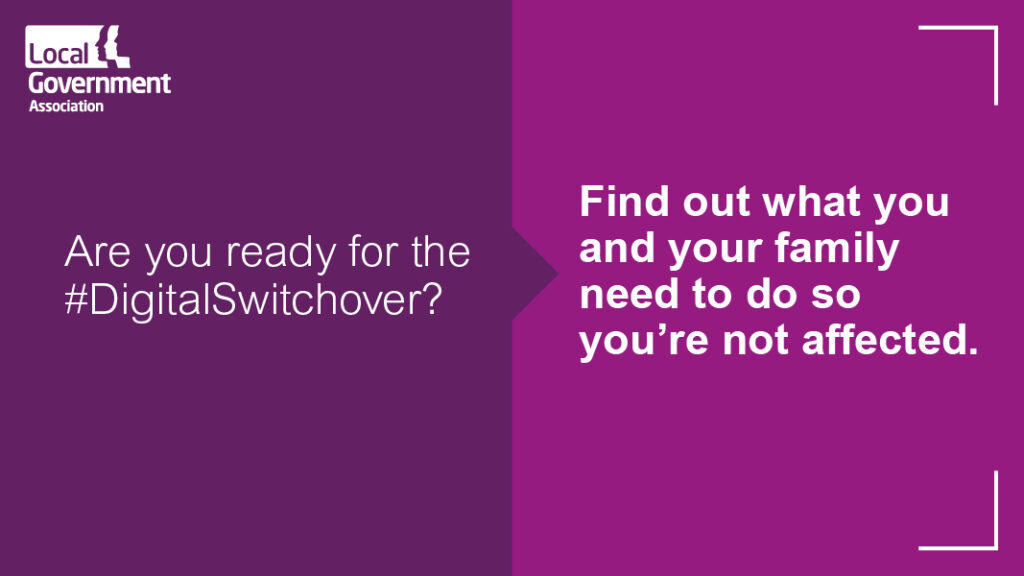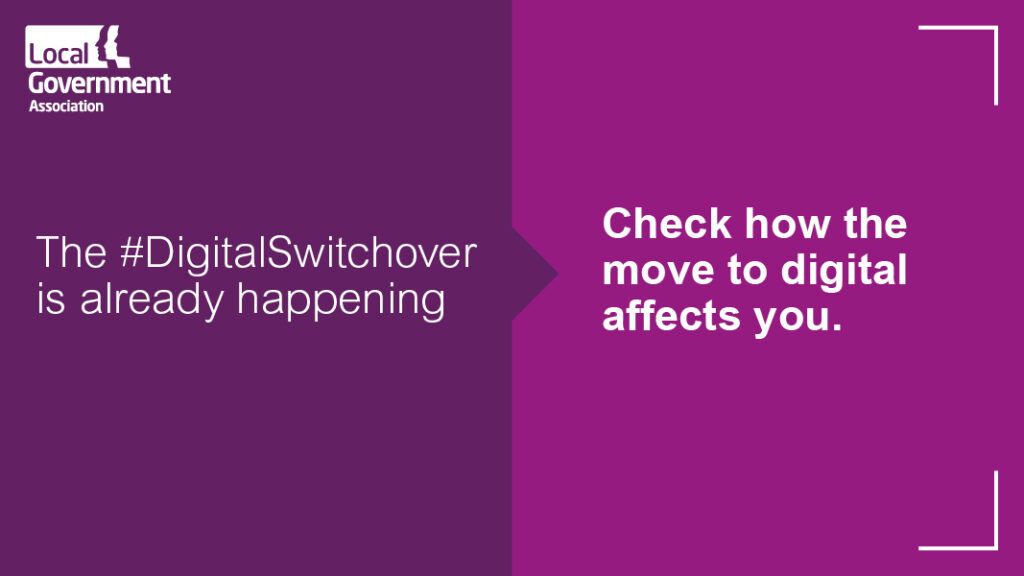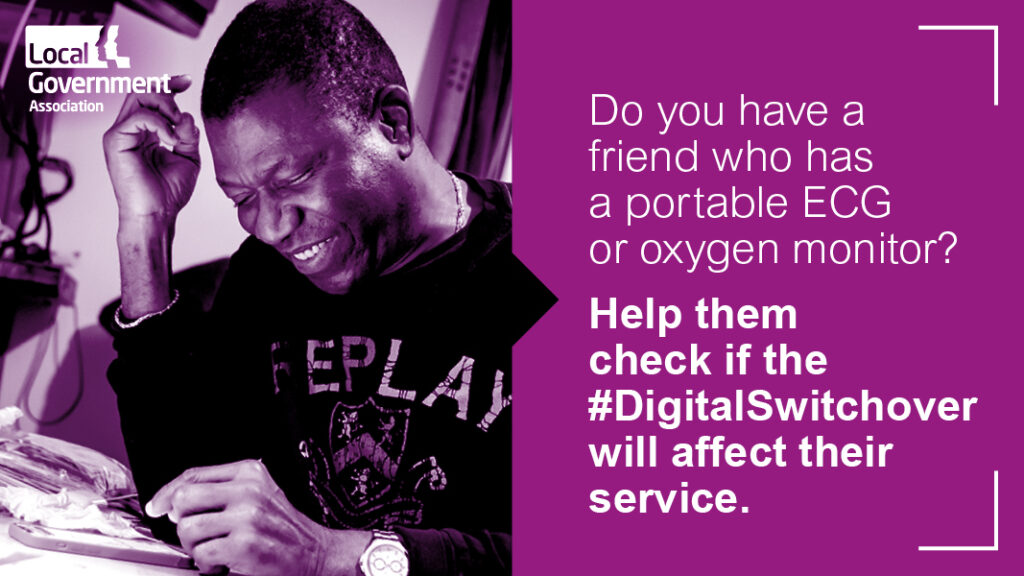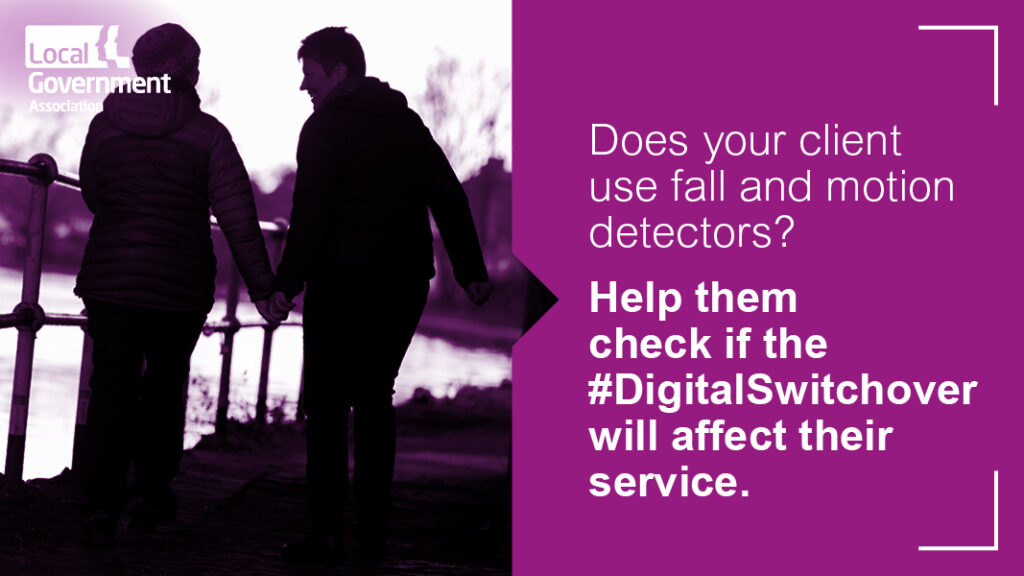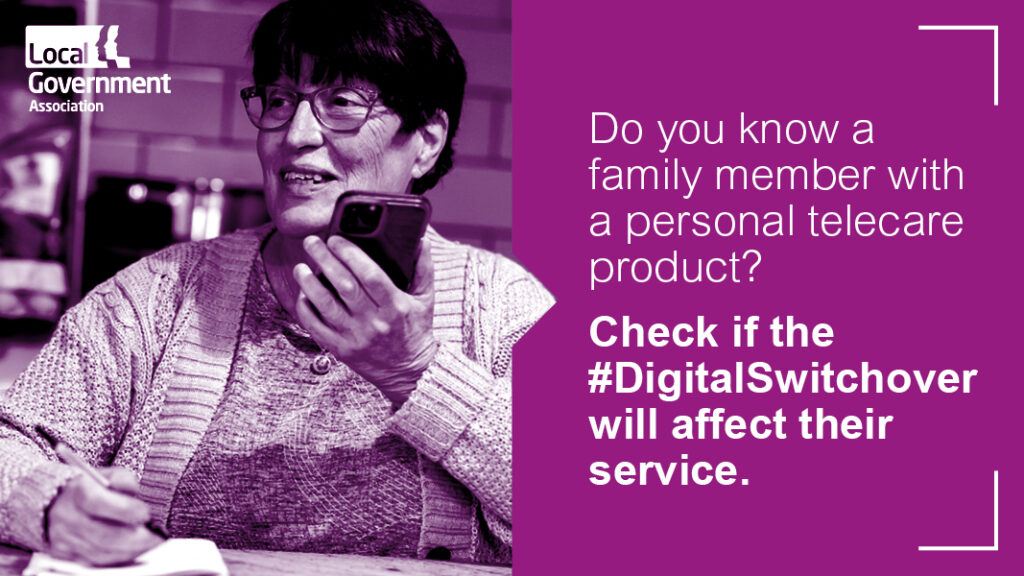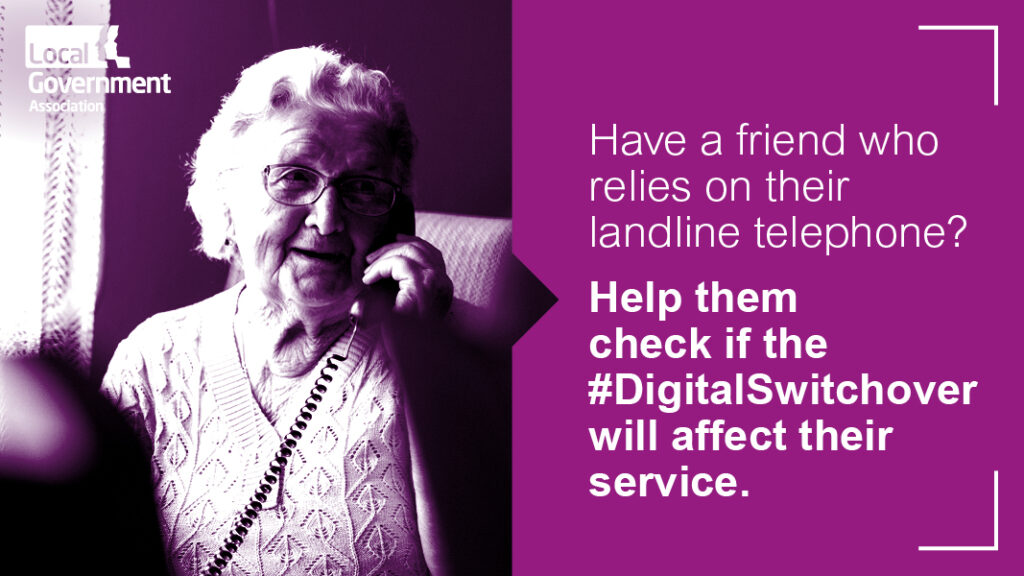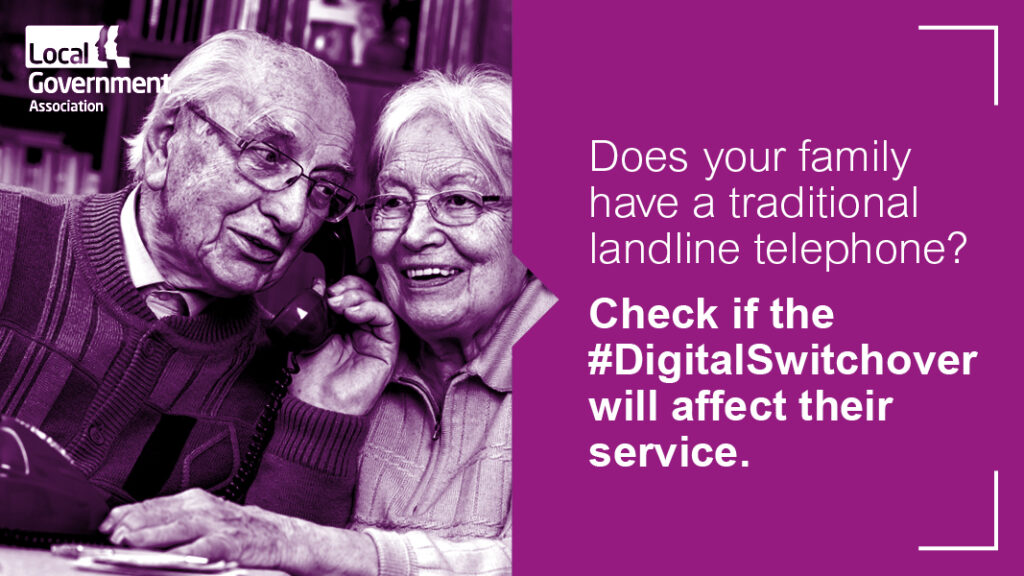What is the digital switchover?
The UK’s telephone network is changing. Also sometimes referred to as the “Copper Switch Off”, between now and the newly announced date of 31 January 2027, most telephone providers will be moving their customers from old analogue landlines over to new upgraded landline services using digital technology.
The new network will provide a future-proof, more reliable and dependable broadband service that will support the UK for decades to come.
This means services that rely on the old landline system such as home phones and healthcare devices will be switched over.
Why is it happening?
The Public Switched Telephone Network (PSTN) is a privately-owned analogue telecoms network and the decision to upgrade it has been taken by the telecommunications industry.
Fixed-line operators – such as Openreach and Virgin Media O2 – will replace analogue telephone services with Voice over Internet Protocol (VoIP) technology, also known as ‘Digital Voice’, which carries voice calls as data using internet technology.
Digital voice services are the future of landlines – they work using broadband connections rather than copper phone lines.
The upgrade will be delivered by the telecoms industry in a phased approach over the next few years, with the UK network expected to be fully upgraded to VoIP services by 2027.
The switchover will happen on a telephone exchange-by-exchange basis and not on a regional basis (as seen in relation to the switchover of analogue television).
How will it affect me/what do I need to do?
The good news is your landline isn’t going anywhere and for most consumers and businesses, this change will be straightforward. In fact, many customers are already making the switch when they upgrade to full fibre broadband.
Your telecoms provider, such as Virgin MediaO2 or Openreach, should contact you before the switchover to check in and discuss what you need to do to make sure your service isn’t affected.
However, the Local Government Association (LGA) is encouraging everyone to know what to expect. If you have an internet connection, the change may be as simple as plugging your phone into your broadband router rather than the socket on the wall.
Take a look at our leaflet for businesses which lists some of the risks and opportunities for organisations and care providers.
Where can I get more information in the meantime?
The LGA is working across the public and private sector to develop guidance and support for residents over the switchover period. Here are some links to guidance and resources that you might find useful:
- UK Government has released guidance on UK transition from analogue to digital landlines – what the retirement of analogue phone lines, also known as the Public Switched Telephone Network (PSTN), means for you.
- Which? has published guidance about digital voice and landline switchover for residents.
- Openreach has developed industry fact sheets, more FAQs and other resources to support anyone who sells, services or uses products that connect through the analogue telephone network.
- UKtelehealthcare has developed a webpage where you can see the latest stop-sell information as well as other resources. Cambridge based
- Cambridge-based independent UK comparison service, Broadband Genie, has an easy-to-understand guide to the PSTN Switch Off: Top Tips to get ready for Digital Voice on their website.
- The Future Of Voice website, hosted by the Broadband Stakeholder Group is the government advisory body on telecommunications. It has been developed with the support of the industry stakeholders BT, Openreach, Virgin Media, TalkTalk, Sky, the Department for Digital, Culture, Media and Sport DCMS and Ofcom. The website is designed for industry to provide information on the migration of fixed voice services to IP.
Digital switchover FAQs
People who use personal alarms or health monitoring devices should check if the switchover will affect how they work.
If you or someone you know depends on their landline or uses a telecare device connected to a phone line (such as a fall monitor, lifeline, or personal alarm), you should notify your communications provider (the provider of this service) so that they can advise on how the switch could affect you.
If you have devices connected to your phone line, such as alarm systems, you might need to upgrade your device to make sure it is compatible.
If you are unsure about how a device in your home or business might be affected, it is recommended you contact the equipment supplier or device manufacturer to find out whether it will still work on a digital phone line.
Digital landlines cannot carry a power connection, so in the event of a power cut they will not work.
If you have a mobile phone this can still be used (as long as it is charged), but if you’ve no other means of calling the emergency services your telecoms provider will offer a solution to allow calls to be made to emergency services. Ask them.
If you’re worried about your devices, please contact the supplier, provider or company who provide them. They will be able to give you more information.
Digital switchover partner toolkit
The LGA has designed a toolkit for councils to use to raise awareness of the digital switchover, including an A4 leaflet explaining what residents need to be aware of.
Local government has a critical role to play in the digital switchover to support residents and prevent impact on their day-to-day life. The toolkit contains assets aimed at residents to raise awareness of the upcoming switchover and can be downloaded from the LGA website.
